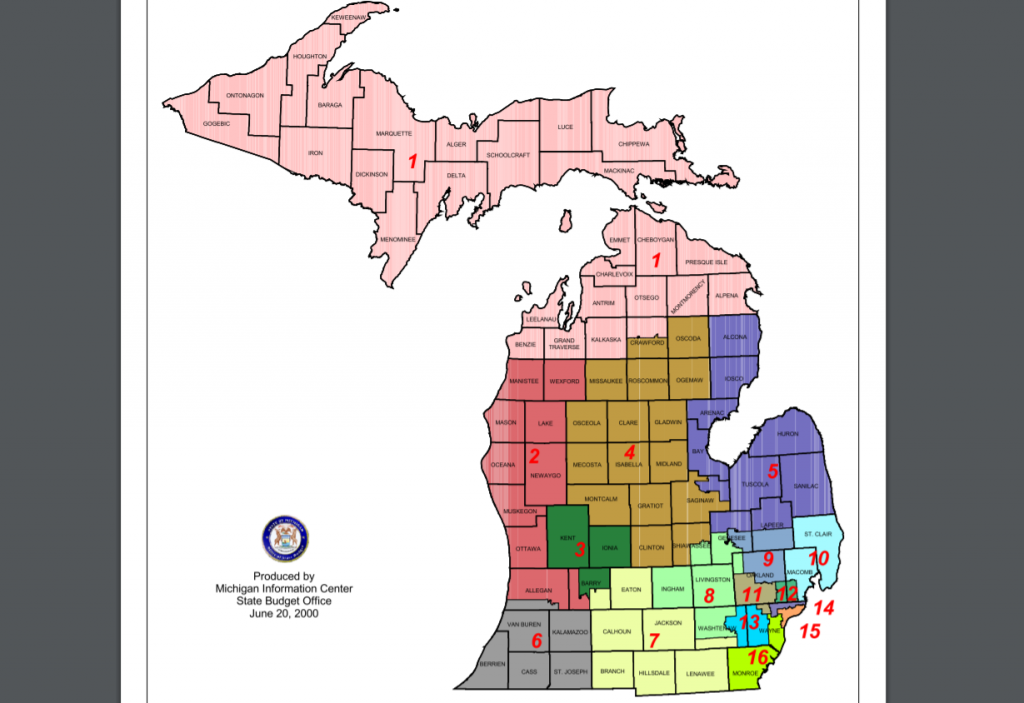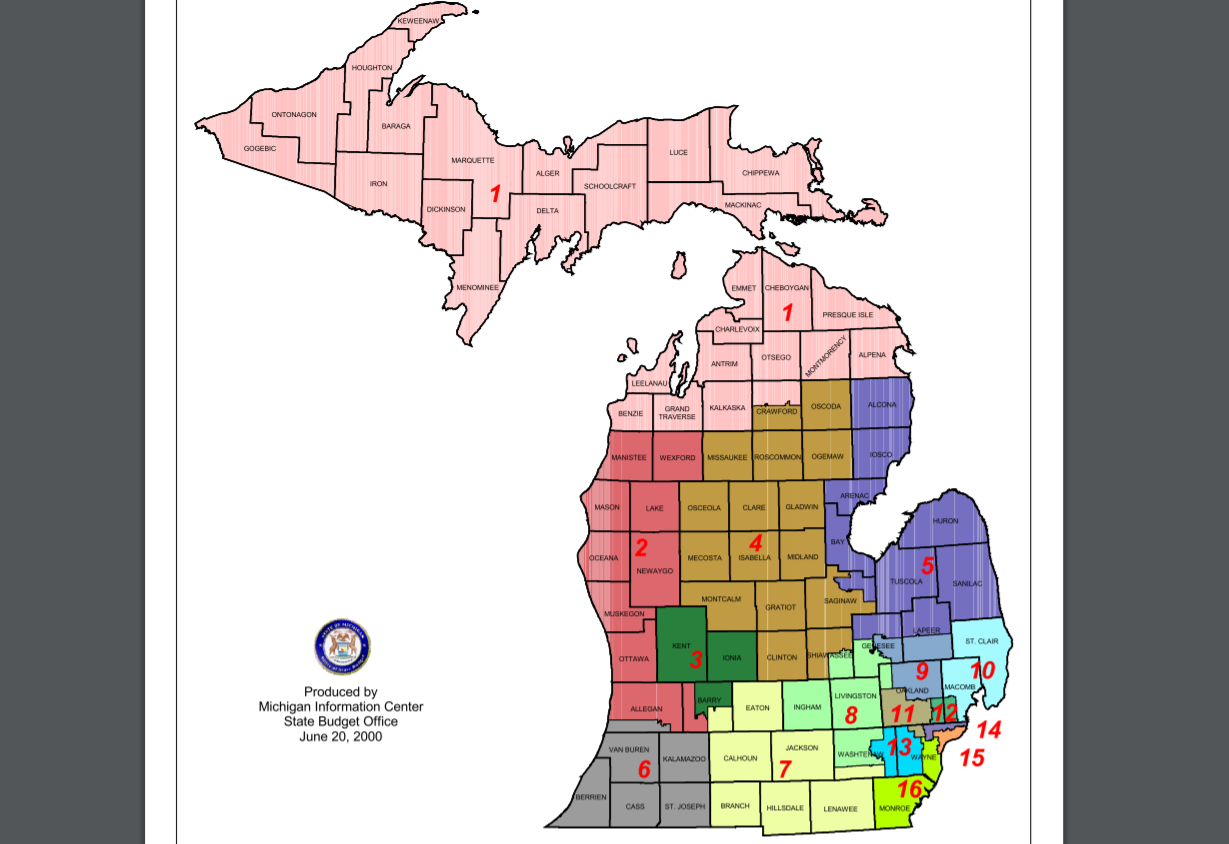Gerrymandering Question Becoming Central to 2018 Election in Michigan
“It’s about how these lines are drawn… which leads to one party having a majority.”


Over the past few years you’ve likely become acquainted with the word “gerrymandering”. That’s because several states, including Michigan, are struggling with a broken system that divides up congressional and legislative districts.
A ballot initiative to curb gerrymandering in Michigan has gained a lot of momentum over the past few months. Voters Not Politicians has been collecting signatures to get a question on the ballot over how to prevent gerrymandering in Michigan. The ballot measure would create a bipartisan commission that would oversee redistricting every ten years.
Currently, the party in control draws and approves the map for district lines, which is a problem that can feed on itself.
In Michigan, Republicans are in control of the Legislature, and have been for some time. That’s partly because Republicans have gotten to redraw a map that favors Republicans for more than 20 years.
“How people in Michigan vote doesn’t line up with the [number of] seats in Congress,” says Katie Fahey, president and treasurer of Voters Not Politicians.
“You have about 50% of the population voting for Republicans, and about 50% of the population voting for Democrats” but that isn’t reflected in our congressional seats, says Fahey.
Michigan has nine Republicans in Congress and five Democrats. Fahey says that disparity is a problem.
“It’s about how these lines are drawn… which leads to one party having a majority.”
The Michigan GOP is opposed to the ballot measure from Voters Not Politicians, siting Democratic Party affiliation among the initiative’s leadership. Representatives for the GOP say the ballot initiative is a political ploy by Democrats.
Fahey says Voters Not Politicians is non-partisan and has volunteers of all political stripes.
To hear the full conversation about gerrymandering on Detroit Today — including a conversation about a possible solution to gerrymandering, and a look at the Wisconsin gerrymandering case before the U.S. Supreme Court — click on the audio player above.
